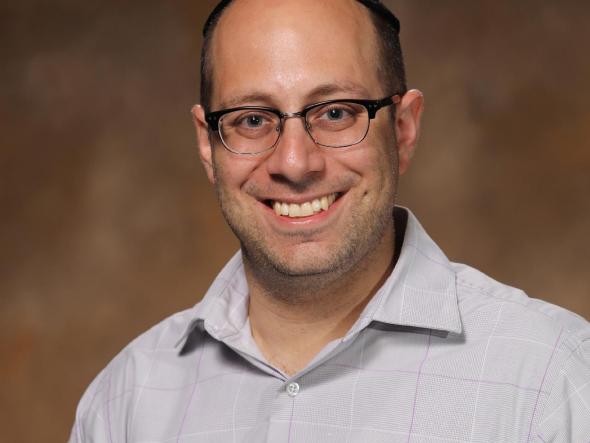Illuminating Inquiry in Jewish Early Childhood Education
With a desire for both continuity and creativity amidst the current backdrop of uncertainty, Jewish early childhood educators and leaders have encountered extraordinary “silver linings” in their work with children and families. As many default approaches are infeasible, an organic environment for inquiry, reflection, and change has emerged. New insights have kindled a scrutiny of once taken-for-granted educational norms, reaffirming Jewish early childhood educators and leaders as innovative researchers and practitioners.
Through my personal and professional conversations, I have witnessed inspiring reflections framed by many “re” words: reinvent, reconsider, and recreate. To support these inclinations and elevate this palpable energy of reimagination, Jewish early childhood educators and leaders continue to commit to an inquiry mindset to transform relationships and teaching. This may seem like an untenable time for such aspirations; however, the realities of the pandemic have amplified educators’ resolve to not just stay afloat but to rethink practices and partnerships with families. Chanukkah, a holiday about rededication, is an ideal opportunity to illuminate the role of Jewish early childhood educators' inquiries and professionalism.
In many Jewish early childhood settings, Chanukkah-related practices are driven by the desire to welcome families into the program. At a time when families cannot come into the classroom, early childhood professionals are taking beautiful lessons from the holiday itself for inspiration. A key theme of Chanukkah is the concept of pirsumei nisa or publicizing the miracles. While there is much rabbinic scholarship and sociohistorical commentary on its implications for today, one important takeaway is that connection can be experienced in counterintuitive ways. In order to spread the message of the Chanukkah miracles, there is a custom to light the candles of the chanukkiah by the window. Even from the potential isolation of individual homes, the candles are designed to bring people together.
As such, Jewish early childhood professionals are planning for Chanukkah by reconsidering how to invite families "in" through more culturally responsive and equitable ways. The current context has sparked a sincere interest in making this holiday season as meaningful as possible. As one Jewish early childhood leader expressed, “I knew this year needed to be different, but I also knew it was an opportunity to bring joy and excitement to these children and families." Within an enhanced milieu of mutuality and empathy, early childhood professionals are developing practices that move beyond trying to replicate the parties and gatherings that used to happen inside. Instead, they are thinking creatively about outdoor and virtual spaces as they prioritize both families’ availability and accessibility to materials and children’s curiosities and interests.
The power of pirsumei nisa, of showcasing one’s chanukkiah by the window, promotes how differences enhance the collective experience. Each window, each home, each chanukkiah, each family, each educator, and each child is distinctive and unique. In this way, another educator ignited a Chanukkah custom to document and publicize the “small miracles” specific to the children in the classroom with the purpose of sharing “the beauty of Chanukkah...in a real palpable way for the adults in our community.”
With a dedication towards meaning-making and partnerships, Jewish early childhood educators are asking important questions. What do families and children want and need right now? What dreams do we have about Chanukkah given the pandemic restrictions? How do we make Chanukkah celebrations and inclusive and uplifting? These types of questions coupled with a researcher disposition empower educators to reflect on their assumptions, elicit ideas and data directly from families and children, engage in dialogue and learning with colleagues, document and reflect on findings, and create new traditions of pirsumei nisa.
While challenges continue to arise, and early childhood educators find themselves rethinking some procedures, an inquiry mindset supports their engagement in systematic cycles of “think-do-reflect” to transform practice. Inquiry sets a precedent for a process of asking questions, evaluating assumptions and current understandings, collecting and analyzing data, drawing conclusions, incorporating novel approaches, and engaging in the next inquiry. An inquiry stance affirms the role of educators’ dynamic knowledge in successful solutions.
Through inquiry, early childhood educators model to young children how to be researchers. Provocations are intentionally selected to propel young children to develop their own questions and act with creativity. Just as early childhood educators value the discoveries and critical thinking of each child, so too Jewish early childhood professionals deserve to be lauded for their dedication to affecting change through inquiry, perspective-taking, and problem-solving.
Let us uphold pirsumei nisa and publicize how Jewish early childhood educators fuse their ingenuity and professionalism to spark sustainable approaches towards transformation.
Ilana Dvorin Friedman is a child development instructor, consultant and researcher based in Chicago.



